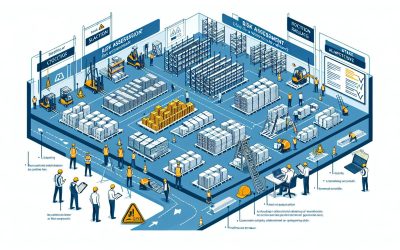Customer demand doesn’t sit still—and neither can your warehouse network. One week it’s steady,...
Maximize distribution efficiency through optimized warehouse network design.
Warehouse Network Optimization
People – Equipment – Workflow

Warehouse network optimization is a strategic service that evaluates and redesigns the geographic layout of your distribution facilities to reduce costs and improve service levels. This service is ideal for supply chain directors, logistics planners, and business owners who want to improve efficiency and customer reach.
By analyzing current performance and future demand, we determine the ideal number, size, and location of warehouses across your network. Key focus areas include:
- Facility location strategy and geographic alignment
- Inventory placement and regional demand mapping
- Transportation cost reduction and route efficiency
- Service level improvement and delivery speed
- Capacity balancing and scalability planning
Whether you’re expanding, consolidating, or rethinking your network, this service helps you make data-driven decisions with confidence.
Strategic Warehouse Network Design for Cost and Coverage Gains
Optimize Facility Locations
Improve Inventory Distribution
Reduce Transportation Costs
Learn More From Our Blog
How to Use Real-Time Data for Dynamic Network Optimization
In today's fast-paced business environment, where competition is fierce and customer demands are...
How to Conduct a Risk Assessment for Your Warehouse Network
Running a warehouse network involves numerous risks that can impact the overall efficiency and...
The Impact of Geographic Location on Warehouse Network Efficiency
When it comes to warehouse operations, efficiency is everything. Warehouse managers are constantly...
How to Use Predictive Analytics for Warehouse Network Optimization
Warehouse network optimization is a crucial aspect of running a successful and efficient supply...
The Benefits of Real-Time Visibility in Warehouse Networks
Warehouse networks play a crucial role in the supply chain management of businesses. As the demand...
Why Choose HCO Innovations for Warehouse Network Optimization?
At HCO Innovations, we understand the complexity of modern distribution networks. Our team leverages deep logistics expertise, advanced modeling tools, and real-world data to design warehouse networks that scale with your growth and support your strategic goals. We don’t just provide a plan—we deliver actionable solutions you can implement immediately.
- Data-driven facility location and demand analysis
- End-to-end optimization from inventory to delivery
- Custom modeling based on your business goals and constraints
- Improved service levels with minimized logistics spend
- Ongoing support to refine and adjust your network over time
Whether you’re building a new distribution model or rethinking your existing one, HCO Innovations helps you unlock performance through smarter network design.








